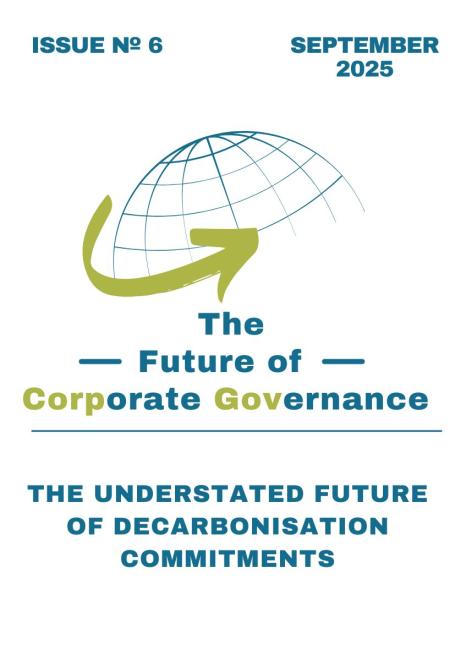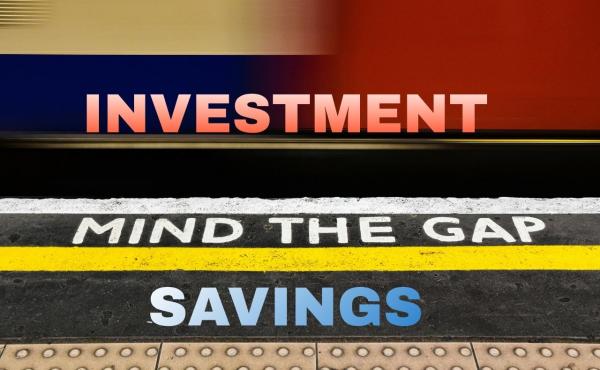
The ECGI blog is kindly supported by

Interview with Marcin Kacperczyk on carbon risk, climate finance, and credibility of Net-Zero pledges
This interview is based on the research of Professor Marcin Kacperczyk, whose work examines carbon risk, climate finance, and the real effects of ESG on firms and financial intermediaries. It draws on his co-authored studies, including “Carbon Emissions and the Bank-Lending Channel”, “Firm Commitments” , and “Do Investors Care about Carbon Risk?”. Explore more of Marcin Kacperczyk’s work here.
__________________________________________
Are we in danger of a “net‑zero bubble” where too much value is tied to promises that may never be delivered?
It goes without saying that many of the existing pledges have been made under more favourable conditions and in economic situations that made such commitments somewhat less costly. The issue of delivering on the pledges will thus not only reflect the firm-specific attitude to such commitments but also potential regime changes in the global socio-economic order. It is difficult to speculate but I think that we may see many failures not necessarily due to bad intentions but simply due to overoptimism in terms of setting earlier expectations. One thing to look for will be whether there are any genuine revisions to pledges and how they are motivated by companies.
Are recent swings in global sustainable fund flows—record outflows in Q1 2025 and rebound in Q2—reshaping investor trust in net-zero commitments?
Recent economic and political turmoil has changed the landscape of ESG investments, also highlighting the social divide across different countries. The flow behavior of 2025 fits in very well within that narrative. It seems quite natural that uncertainty around the election of the new U.S. President caused significant response from investors, particularly in the US, but also globally. I would argue that some of this response was probably an overreaction, so naturally we can expect some reversion in flows. Also, the positive flows in Q2 have likely coincided with the rebound in financial markets in general. However, I would not overinterpret these numbers. To me, we are still in the midst of a highly unfavourable investment environment, especially in the U.S., and it will take a bit more than just a few quarters of robust flows to call any patterns a reversal of the trend.
With the EU delaying CSRD/CSDDD and the U.S. retreating from climate disclosure rules, how might markets price the credibility of pledges under weaker regulation?
The quality of the pledges has generally been assessed jointly with information disclosure. In one of my studies with Joe Aldy, Patrick Bolton, and Zach Halem, we have actually shown that the market response to pledges largely subsumes the response to disclosure. So, I think we can expect some movements in prices, largely reflecting the weaker disclosure environment. I am not sure these movements will necessarily reflect weaker credibility of the pledges. To me, it will be more a response to a more uncertain investment environment.
Amid “greenhushing” and firms exiting alliances like NZAM and NZBA, what signals should investors look for to distinguish genuine transition from quiet retreat?
The exit of several financial institutions from NZAM and NZBA has been a very unwelcome event. The origins of it are definitely politically grounded and reflect the current stance of the US administration towards the process of decarbonisation. The exit is likely a pooled outcome in which both good and bad types withdraw. Perhaps, a good next step is to follow alternative actions taken by these exiters. I expect the good types to still look for opportunities to adhere to the right principles and simply do it in a less publicly visible way. In fact, it seems to me a good area for serious research to think of the true intentions and some credible measures of greenwashing.
Are markets rewarding or punishing firms that revise or abandon net‑zero pledges?
There is so far little research on the topic but as I have mentioned some evidence suggests that pledges are jointly assessed with other initiatives, including disclosure and other corporate communications. There is also some work that suggests that companies that do not meet their targets observe some degree of punishment by markets, but this evidence is not particularly strong and is restricted to one year of missed pledges. I would hope that like emissions, pledges will become an additional signal on which investors will decide their capital allocations and thus their actions will serve the role of an incentive mechanism, like a carbon premium.
How can companies navigate the political backlash to climate commitments while maintaining investor confidence?
To me, the obvious action is to avoid publicity of unwelcome constituencies. Some of them could be equity analysts or institutional investors. In this regard, moving external financing away from public markets is clearly a step in that direction. We can also hope that despite abandoning some of the pledges at least a few of the companies will continue on their decarbonisation paths. Some of these actions will likely depend on the economic situation as well. Recessionary periods may make a green transition more difficult while expansionary ones may be less prone to scrutiny.
If stronger standards expose weak commitments, who stands to gain—and who will be left behind?
As is always the case, those who are more truthful in their assessment and genuine to their objective will be the likely winners. It is quite obvious that any potential greenwashers will be the first ones to be exposed. To paraphrase Warren Buffett, when the tide goes out we will be able to see who is swimming naked.
__________________________
The ECGI does not, consistent with its constitutional purpose, have a view or opinion. If you wish to respond to this article, you can submit a blog article or 'letter to the editor' by clicking here.







